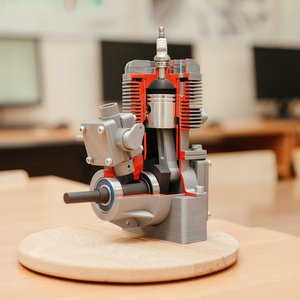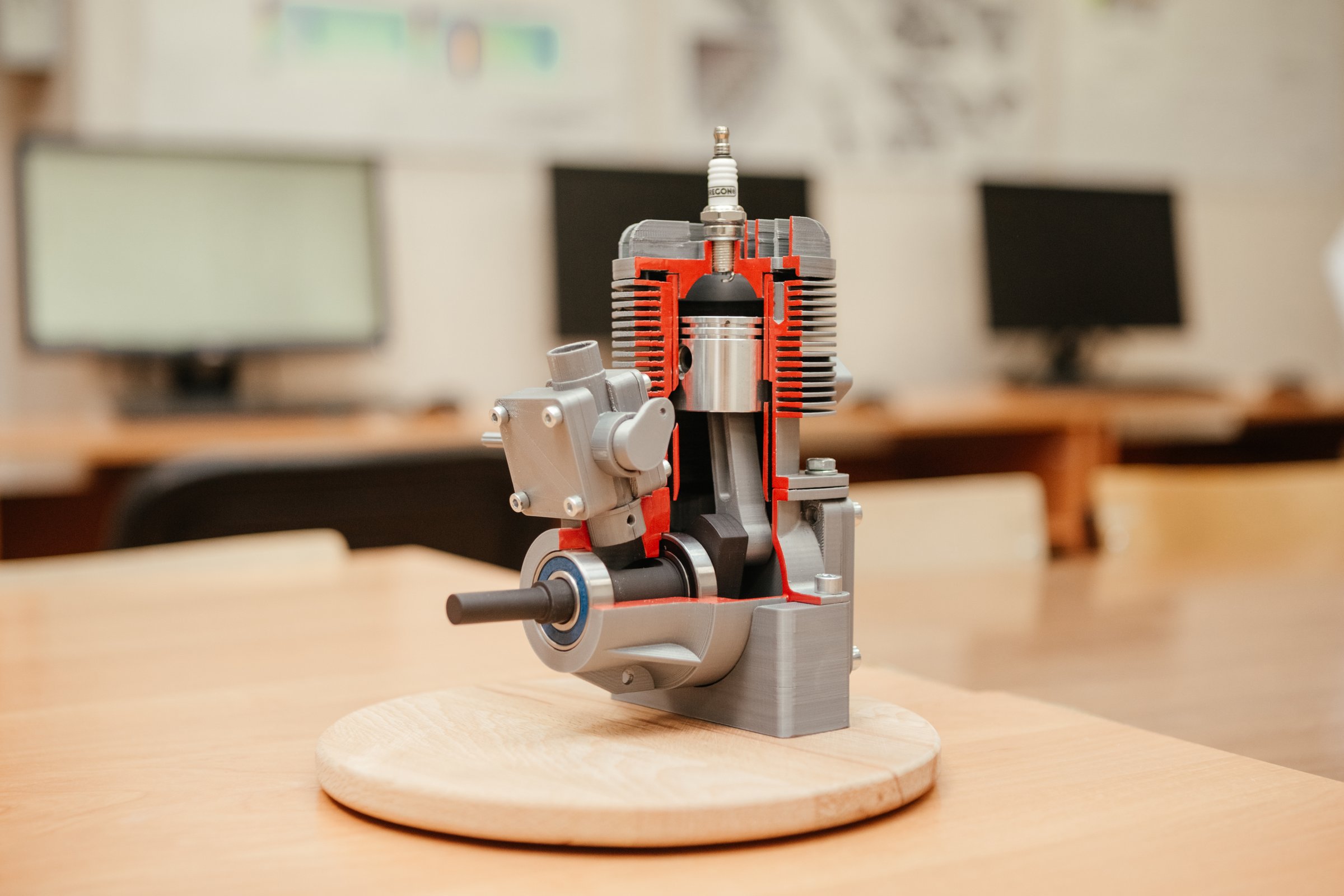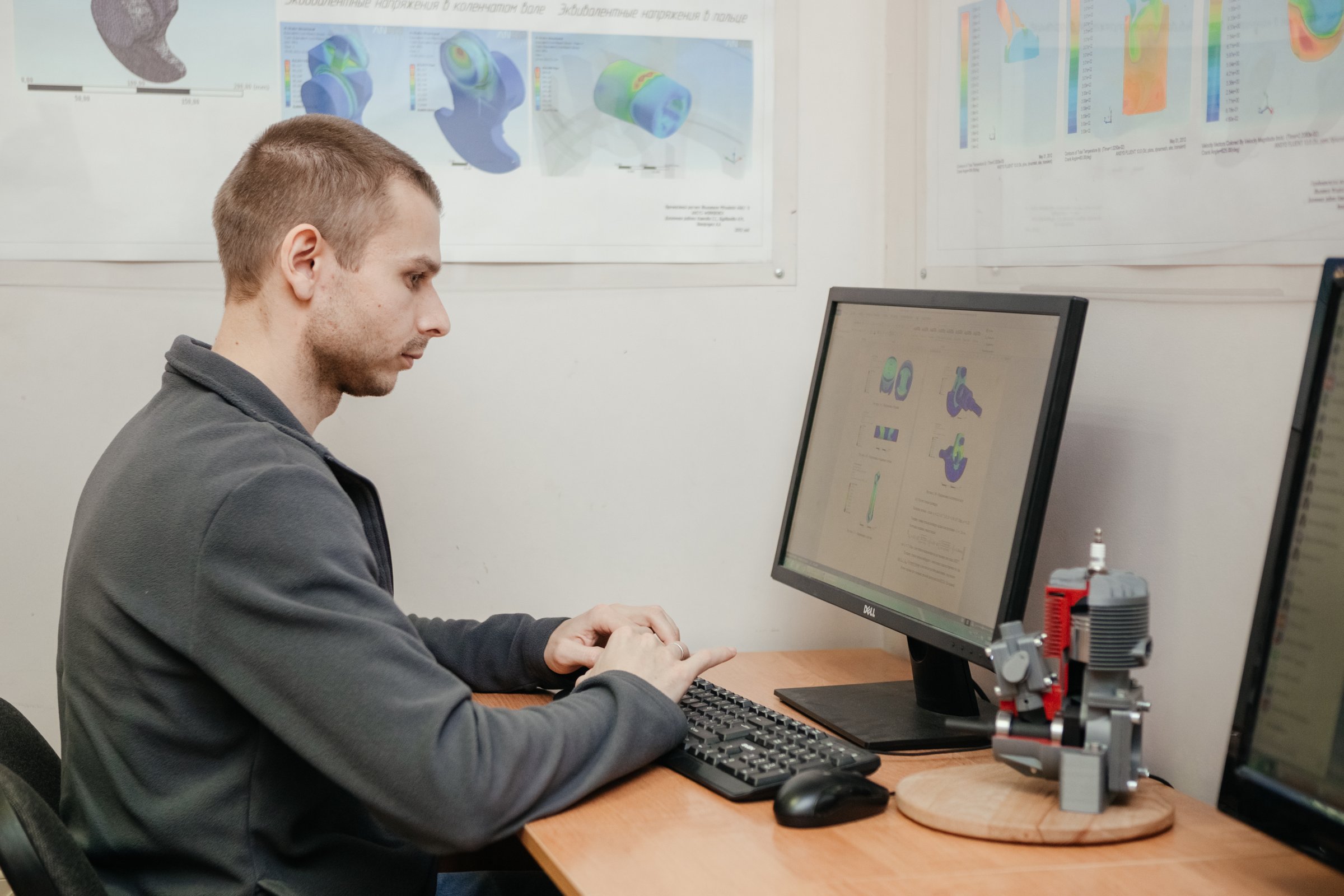The group of employees of the Heat Engineering and Heat Engines Department, Samara University, (the University participates in the National Project “Science and Universities”), headed by Associate Professor Mikhail Orlov, including Aleksey Gorshkalev, Viktor Urlapkin and Sergey Korneev, has developed the project of the aviation piston engine with its capacity of 5 hp for unmanned aerial vehicles (UAVs). Time-tested, simple, but effective solutions are implemented in it.
“Our development, first of all, meets requirements for the drone engine. It is simple in design and adapted to large-scale production. It is lightweight, with high-liter capacity and inexpensive. It’s reliable in operation and resistant to external electromagnetic effects. Herewith, we have provided for high maintainability of its design and the opportunity for significant increase in resource, which will allow offering to the market modifications for ground-based gasoline equipment”, Mikhail Orlov said.
He explained that in the power range from 5 to 50 hp, a two-stroke piston engine is more efficient than a four-stroke one and exceeds it in weight and size specifications. The carburetor power system on the UAV engine is preferable to the modern fuel injection system, as it is more resistant to external electromagnetic effects. The steel sleeve combined with the aluminum cylinder block means, on the one hand, weight saving, and, on the other hand, maintainability and simplification of the manufacturing technology of key components that determine the engine basic specifications.
Now this development of Samara University must be embodied in metal, for the purpose of completing the testing and fine-tuning program, and then it will be put into production at one of Samara enterprises. To do this, developers need an industrial partner, which is currently being searched for.
“Work on designing small-sized aircraft piston engines in the power range from 5 to 50 hp is more relevant today than ever. Engineers know that designing an aircraft begins with selecting a suitable engine. But for Russian UAV developers, imported engines of this class are currently unavailable because of either “sky-high” prices, or termination of supplies to the country. As for Russian developments, there are practically none of them in this niche now”, Mikhail Orlov noted.
The head of the development group stressed that, on the base of this one-cylinder engine with its capacity of 5 hp, the line of multi-cylinder aircraft engines of different capacities and schemes can be quickly developed: inline, opposed, V-shaped, star-shaped engines with the number of cylinders from two to five. And having increased the engine resource due to depowering, one can convert with minimum of costs the aircraft modifications for light motorcycles and household gasoline equipment – motor cultivators, tillers, lawn mowers and chainsaws. This approach opens up for the University development good market prospects.
The aircraft piston engine with its capacity of 5 hp is being developed at Samara University as part of the Priority 2030 Program. According to Mikhail Orlov, along with development of engine projects, the project group is engaged in theoretical developments that allow speeding up the design and fine-tuning process. The Department also has its own bench base, which makes it possible to test engines with the capacity of 5 hp and more.
“Samara University de facto can and should become one of promising centers for developing drones. We have all the competencies for this: there is the Center for unmanned systems, where several models of light UAVs have already been created, and the subject matters can be expanded. There are highly skilled specialists in piston engines, and training engineers in this area has not stopped since 1942. It was in Samara in 1982-1983 where the first domestic remotely controlled aircraft “Bee” and its piston engines P-020 and P-032 were developed. Today, we are ready to continue these traditions”, said Academician Evgeny Shakhmatov, Scientific Supervisor of Samara National Research University.


